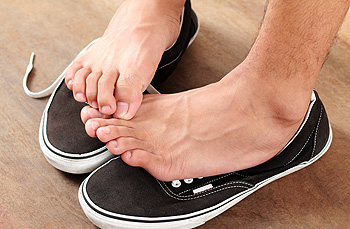Comprehensive Overview to Sweaty Hands Treatment: Proven Dermatology Approaches
Comprehensive Overview to Sweaty Hands Treatment: Proven Dermatology Approaches
Blog Article
Comprehending the Origin of Excessive Sweating and Its Influence On Every Day Life
While it is commonly understood as a physiological action to regulate body temperature, the triggers for extreme sweating can vary widely amongst people, encompassing not only physical variables but also emotional and mental elements. By diving into the origin causes of hyperhidrosis and discovering its complex effects, a much deeper understanding of this pervasive issue can be obtained, shedding light on the intricacies that people grappling with extreme sweating browse on a daily basis.
Physiology of Sweat Glands
The guideline of sweat production, an important physiological process, is mainly controlled by the task of sweat glands distributed across the human body. Sweat glands are classified into two major types: eccrine and apocrine glands.
When the body temperature climbs, either because of exercise, high temperature levels, or psychological stress and anxiety, the nerves sets off the sweat glands to generate sweat. This sweat is made up largely of water and electrolytes like salt and chloride. The procedure of sweat manufacturing is essential for preserving the body's interior temperature within a slim, optimal range, highlighting the important duty gland play in human physiology.
Triggers for Excessive Sweating
In recognizing the source of excessive sweating, it is crucial to determine the triggers that can cause this physiological response. Extreme sweating, also referred to as hyperhidrosis, can be triggered by numerous elements, both physical and environmental. One common trigger is psychological tension or stress and anxiety, which can promote the body's gland to create even more sweat than is needed for cooling down. Physical exertion, heats, and spicy foods are also understood to cause extreme sweating in individuals prone to this problem. Furthermore, specific medical problems like menopause, diabetes mellitus, or hyperthyroidism can add to excessive sweating also.
Additionally, medicines such as some antidepressants, opioids, and particular supplements can likewise act as triggers for hyperhidrosis. Comprehending these triggers is essential in managing extreme sweating efficiently - Sweaty hands treatment. By determining and addressing the certain triggers that motivate extreme sweating in an individual, doctor can establish tailored treatment strategies to alleviate this condition and boost the individual's lifestyle
Medical Conditions Associated
Related to excessive sweating are numerous clinical conditions that can worsen this physical action. One common condition is hyperhidrosis, a condition characterized by unusually enhanced sweating that goes beyond the body's thermoregulatory requirements. This can materialize in focal areas like the hands, soles, underarms, or face, influencing an individual's lifestyle as a result of social shame and pain.
Furthermore, endocrine problems such as hyperthyroidism, diabetic issues, and menopausal warm flashes can also lead to extreme sweating. Hyperthyroidism creates an overflow of thyroid hormonal agents, speeding up metabolism and triggering sweating. Diabetes mellitus can generate sweating episodes, especially throughout hypoglycemic episodes when blood sugar level degrees drop too reduced. Menopausal hot flashes, credited to hormone variations throughout menopause, can create sudden and extreme sweating, frequently gone along with by flushing and heart palpitations.
In addition, infections like consumption, endocarditis, and hiv have actually been related to evening sweats, a typical signs and symptom known to disrupt rest and impact overall well-being. These medical conditions highlight the varied series of underlying elements that can contribute to too much sweating, requiring thorough analysis and management by medical care experts.
Emotional and Mental Aspects

Effect on Social Interactions
Extreme sweating can have extensive results on an individual's ability to engage conveniently in social interactions. The visible indicators of sweat discolorations or damp patches on clothing can cause embarrassment and self-consciousness, creating individuals to withdraw from social circumstances. This withdrawal can influence relationships, limitation social tasks, and hinder individual and specialist development.

Additionally, the anxiousness and self-esteem concerns originating from too much sweating can impact communication and interpersonal skills. People may battle to concentrate on conversations, get involved in group tasks, or reveal themselves with confidence. This can cause feelings of isolation and special info loneliness, as social links become challenging next page to maintain.
Verdict

While it is typically recognized as a physiological action to control body temperature, the triggers for extreme sweating can differ commonly amongst people, incorporating not only physical factors but mental and also psychological elements. By delving into the root causes of hyperhidrosis and exploring its complex results, a deeper understanding of this pervasive issue can be obtained, losing light on the complexities that individuals grappling with too much sweating navigate on an everyday basis.
Physical effort, high temperature levels, and spicy foods are also known to set off excessive sweating in people vulnerable to this problem. By determining and addressing the details triggers that prompt extreme sweating in an individual, medical care carriers can develop individualized therapy strategies to minimize this condition and improve the person's top quality of life.
Excessive sweating can have profound impacts on an individual's capability to involve click here to find out more easily in social communications.
Report this page